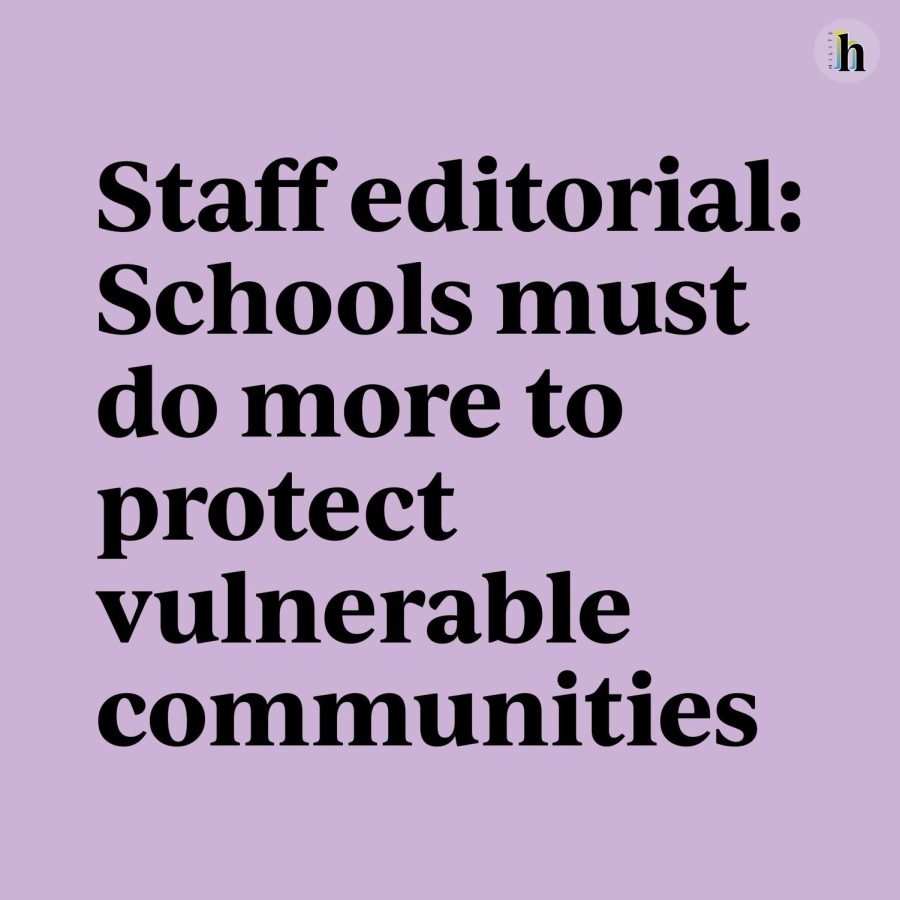On Jan. 11, an IU student from Carmel was stabbed on a bus. According to court documents, the perpetrator, Billie Davis, said she targeted the student for “being Chinese,” adding “it would be one less person to blow up our country.”
This unprovoked act of violence was a hate crime, though it will not be prosecuted as such. According to Monroe County Chief Deputy Prosecutor Jeff Kehr, Indiana does not have any hate crime laws.
“We have no law that increases the level of the charge or the maximum penalty for a crime that is motivated by hate,” Kehr said in an interview with NBC. “It is a statutory aggravating circumstance that can be argued to the judge at sentencing to increase the sentence beyond the midpoint, but that’s it.”
Indiana’s hate crime statute, Senate Enrolled Act (SEA) 198, was passed in 2019. According to the Anti-Defamation League, the law contains “uniquely and problematically broad language” which fails to protect all members of the community.
The HiLite staff encourages the state of Indiana to develop comprehensive hate crime laws that allow for the prosecution of attacks motivated by race, gender, sexual identity, national origin, disability and more.
While it is important to treat these crimes as the act of hate they are, it is also crucial to address the root cause. A hate crime is not just an attack on an individual, but an attack on a community. The HiLite staff commends Indiana University for offering counseling support to those who need it, but more must be done.
Schools cannot just “stand firmly” with affected communities, but must actively tear down spaces where harmful rhetoric is able to flourish. When people feel comfortable mocking other communities, falling for stereotypes or using fighting words like slurs, it means the school has allowed a harmful and toxic environment to develop.
While the HiLite staff commends CCS’s previous steps toward a welcoming environment through the implementation of diversity, equity and inclusion (DEI) officers in recent years, these actions are not a solution. The HiLite staff calls on CCS to take action against discriminatory rhetoric through professional development and other methods to support minority communities. School administration must stop using diversity, equity and inclusion as buzzwords; instead, administration should listen to and actively address student concerns to build a more welcoming environment.

































![AI in films like "The Brutalist" is convenient, but shouldn’t take priority [opinion]](https://hilite.org/wp-content/uploads/2025/02/catherine-cover-1200x471.jpg)









































![Review: “The Immortal Soul Salvage Yard:” A criminally underrated poetry collection [MUSE]](https://hilite.org/wp-content/uploads/2025/03/71cju6TvqmL._AC_UF10001000_QL80_.jpg)
![Review: "Dog Man" is Unapologetically Chaotic [MUSE]](https://hilite.org/wp-content/uploads/2025/03/dogman-1200x700.jpg)
![Review: "Ne Zha 2": The WeChat family reunion I didn’t know I needed [MUSE]](https://hilite.org/wp-content/uploads/2025/03/unnamed-4.png)
![Review in Print: Maripaz Villar brings a delightfully unique style to the world of WEBTOON [MUSE]](https://hilite.org/wp-content/uploads/2023/12/maripazcover-1200x960.jpg)
![Review: “The Sword of Kaigen” is a masterpiece [MUSE]](https://hilite.org/wp-content/uploads/2023/11/Screenshot-2023-11-26-201051.png)
![Review: Gateron Oil Kings, great linear switches, okay price [MUSE]](https://hilite.org/wp-content/uploads/2023/11/Screenshot-2023-11-26-200553.png)
![Review: “A Haunting in Venice” is a significant improvement from other Agatha Christie adaptations [MUSE]](https://hilite.org/wp-content/uploads/2023/11/e7ee2938a6d422669771bce6d8088521.jpg)
![Review: A Thanksgiving story from elementary school, still just as interesting [MUSE]](https://hilite.org/wp-content/uploads/2023/11/Screenshot-2023-11-26-195514-987x1200.png)
![Review: "When I Fly Towards You", cute, uplifting youth drama [MUSE]](https://hilite.org/wp-content/uploads/2023/09/When-I-Fly-Towards-You-Chinese-drama.png)
![Postcards from Muse: Hawaii Travel Diary [MUSE]](https://hilite.org/wp-content/uploads/2023/09/My-project-1-1200x1200.jpg)
![Review: "Ladybug & Cat Noir: The Movie," departure from original show [MUSE]](https://hilite.org/wp-content/uploads/2023/09/Ladybug__Cat_Noir_-_The_Movie_poster.jpg)
![Review in Print: "Hidden Love" is the cute, uplifting drama everyone needs [MUSE]](https://hilite.org/wp-content/uploads/2023/09/hiddenlovecover-e1693597208225-1030x1200.png)
![Review in Print: "Heartstopper" is the heartwarming queer romance we all need [MUSE]](https://hilite.org/wp-content/uploads/2023/08/museheartstoppercover-1200x654.png)




